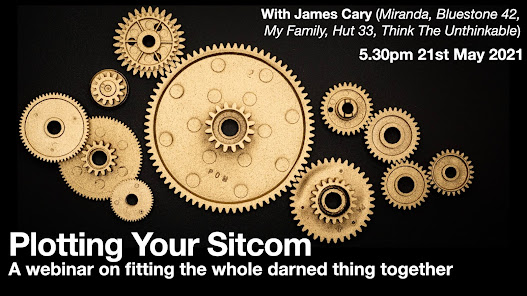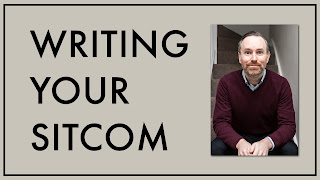At the sad passing of the Duke of Edinburgh, TV stations began wall-to-wall obituaries and tributes. But soon the question began to be asked in all seriousness: “They’re not going to bump Line of Duty, are they?”
The nation is gripped by Line of Duty, Jed Mercurio’s compelling and unfolding drama about police corruption. In today’s ever-fragmenting media, 9 million viewers are turning up and tuning in to watch it live. Not streaming. Not catching up. Not binging. Watching it. Live. They can’t wait to see it, they don’t want to risk spoilers and they want to be part of the cultural moment.
I’m part of that 9 million. It’s always a scramble to put the kids to bed and get the lights out, so we’re not watching it on delay. I want to be able to watch along with everyone else and watch Twitter react and join in with the chat. It’s an event. Episode four was so vivid, it felt like it should have been the lead story on the BBC Ten O’Clock News bulletin that started straight afterwards. The thrills and blood spills continue.
This shared experience is, I think, an important part of a culture and social cohesion. It’s hard to say if the fragmentation of our media the cause or a symptom of our growing tribalism but that’s a discussion for a different blog. But it’s worth noting that this isn’t just about TV, and genres. It’s who we are.
So What About Sitcoms?
It was during episode three of Line of Duty that I felt a tinge of regret. Why couldn’t there be this level of engagement with a mainstream sitcom? Right now. It feels like their time has passed. But in this post, and some following ones, I'd like to argue that sitcom could easily make a return, that there's nothing to be afraid of and that sitcoms aren't just for Christmas.
Historically some of the biggest TV audiences have been sitcoms. The same year that millions watched Prince Charles marry Diana, a similar number watched the big season finale wedding in
To the Manor Born: a record-breaking audience of 24 million. This record was beaten by the nation’s favourite
Only Fools And Horses Christmas trilogy in 1996.
Are those days over? Not quite.
We get a few glimmers at Christmas, or at least some glowing embers. Christmas is the time when a mainstream sitcom might still be given a prime-time slot and the front cover of the seasonal bumper Radio Times. Those sitcom specials are expected to pull in big numbers.
If I may blow my own trumpet briefly, I was at least partially responsible for Miranda’s Christmas Special in 2012. It was watched by Line-of-Duty-numbers: 9.47 million people. It beating Christmas Day EastEnders, Doctor Who (7.58m) and Strictly Come Dancing (7.76m), Call The Midwife (7.27m) and the Downton Abbey special (6.83m).
Three years later, Mrs Brown’s Boys took over as the ratings winner. But six years on, it’s hard to see where the next Christmas special is going to come from.
Rummaging Around for Old Favourites
2020 was an odd year because of Covid, filming disruption and maybe even TV fatigue. Ratings were a disaster all round. But the normal Christmas trick is to invoke the ghosts of sitcoms past, and persuade writers and actors to show us what our much loved sitcoms of yesteryear could look like now. We’re often a little disappointed. But we’ll watch anyway, because we love the characters and the world and the genre. At the moment, it’s hard to see what BBC1’s options are for another seasonal ratings smashing sitcom special in 2021 that you can watch with your sister, your son and your gran.
When we’re not disappointed and 11 million of us are delighted all over again by Gavin and Stacey, audiences are left asking the big question: why can't we have this all year round?
Sitcoms aren’t just for Christmas. They’re for life. Or they should be. So where are the mainstream sitcoms going to come from?
Where Do Sitcoms Come From?
Let’s learn some lessons here from
Line of Duty. Where did that come from? A focus group who demanded a gripping drama about police corruption? Nope. It came from an experienced writer called Jed Mercurio who had also created
Cardiac Arrest and
Bodies.
Where did Sherlock come from? A TV commissioner realising that the world needed an updated Victorian sleuth? Nope. An experienced (comedy) writer called Steven Moffatt who had also created Press Gang and Coupling.
Where did Last Tango in Halifax, Downton Abbey and other ratings sensations come from? Experienced writers who could be trusted to come up with an idea people would enjoy and execute it well.
Compare and Contrast
Contrast that with two truly great sitcom writers with track records going back decades: Andy Hamilton and Guy Jenkin (Drop the Dead Donkey, Outnumbered). When Dave and I spoke to them for Episode 150 of the Sitcom Geeks podcast, we discovered how many scripts they had written since Outnumbered that were rejected, passed over and ignored. It was quite a lot. They were also given the impression that people thought that Outnumbered had only been a hit because they’d got lucky with some funny kids. Seriously. Go and listen to the episode. This is how mainstream sitcom writers are treated. I’ve not spoken to Marks and Gran since we recorded episode 50 we recorded back in 2017, but I suspect their experience is the same.
My point is this: there is a lot of mainstream sitcom writing talent out there. It's not even waiting to be discovered. It's hiding in plain sight.
Some great sitcom writing talent is no longer with us. Victoria Wood (dinnerladies) almost certainly had another truly great mainstream nation-grabbing comedy in her. Likewise, Carla Lane was sadly unable to replicate Roy Clarke’s prolific longevity and give us more Bread, Butterflies or Liver Birds.
But Roy Clarke (Open All Hours, Last of the Summer Wine) is still going at 91. Eric Chappell (Rising Damp, Only When I Laugh, Duty Free) is only a few years behind and still going. He got the impression he was no longer wanted as far back as the early nineties. Let’s let that one sink in. The man who wrote Rising Damp couldn’t get another show in TV and effectively retired. (I spoke to him for the Sitcom Geeks podcast here).
Others have stayed the course in the UK, like Naylor half of Grant/Naylor who is still writing Red Dwarf for Dave, but others have switched genre. Who can blame them? Given the experiences of those above, is it any wonder that Steven Moffat, writer of the brilliant series Coupling, would rather write hour-long highly acclaimed series like Dr Who, Sherlock and Dracula? Which also have bigger budgets than comedies?
Why on earth would Simon Nye go back to the genre that gave us Men Behaving Badly – the finale of which was watched by 13.9 million in 1998 – when he could make a good living writing hours of adaptations like The Durrells? Why would Richard Curtis go back to Dibley or Blackadder when he could write and produce another Notting Hill?
Bless Ben Elton (Blackadder, Thin Blue Line) for getting back on the horse with Upstart Crow which, let’s be honest, only exists because the original episode was celebrating a Shakespeare Anniversary, and it comes with Blackadder style and pedigree.
Brain Drain
Others have left the country too. Jonathan Lynn, who co-wrote my favourite show of all time, Yes, Prime Minister, went off to Hollywood, only to return to UKTV for a short revival of the show for stage and screen in 2013.
The sitcom writing talent is there. And they are writing comedy. Just not in the UK. Who wrote Veep, a show created by our own Armando Iannucci? The shows credits include Simon Blackwell, Tony Roche, Georgia Pritchett, Will Smith, Andy Riley, Kevin Cecil, David Quantick, Roger Drew, some of whom have gone on to work with Jesse Armstrong on his highly acclaimed HBO show, Succession.
My point, by now, should be clear. There is an abundance of sitcom writing talent. In fact, there is a really weird amount of experienced, successful and acclaimed sitcom-writing talent. It’s just very few of them are writing mainstream sitcoms for BBC1. Why is that?
Talk to any of these writers (and we do on the Sitcom Geeks podcast) and you will hear nothing but fond affection for the great mainstream sitcoms of the past, watched in living rooms in the '70s and '80s. Given the chance, most of these folk would leap at the chance to ape their comedy heroes and write their own Fawlty Towers or Dad’s Army. Why aren’t they doing that?
Emmy-winning writer and producer of Veep, Will Smith, wrote a wonderful sitcom for BBC Radio 4 called Mr and Mrs Smith, starring Sarah Hadland (Miranda), Paterson Joseph (Peep Show) and Geoffrey Whitehead, about a couple in marriage counselling. It was really simple, well-written and funny. There were attempts to get it on TV that foundered until it was clear it was going nowhere. Since then, it doesn’t look like Will Smith has looked back professionally.
Greener Grass
Perhaps I have a rose-tinted view of the greener grass over on the drama side of things. And there is plenty of comedy around on other channels and streaming platforms where a critical factor (entirely reasonably) is new voices.
But it’s frustrating to see sitcoms mostly absent from the mainstream, as if they couldn't get huge ratings, when historically this isn't true, and when there is so much talent around, if only someone would back it.
To me, backing mainstream sitcom doesn’t even seem like “a courageous decision”, as Sir Humphrey would put it. I’d go with Del Boy. “You know it makes sense.”
In the next post, we'll look at how success breeds success.
In the meantime:
To get a foot in the door of sitcom writing, or if you have an idea for a sitcom that you’d like to write, the first thing you’ll need to do is write a pilot script.In fact, the very first thing to do is plan the script.
In fact, before that you need to figure out what the show actually is.
In fact, it might just be simpler if you had a look at my video course, Writing Your Sitcom, which takes you through twelve steps to writing your sitcom script, plus a monthly Zoom chat with me.














